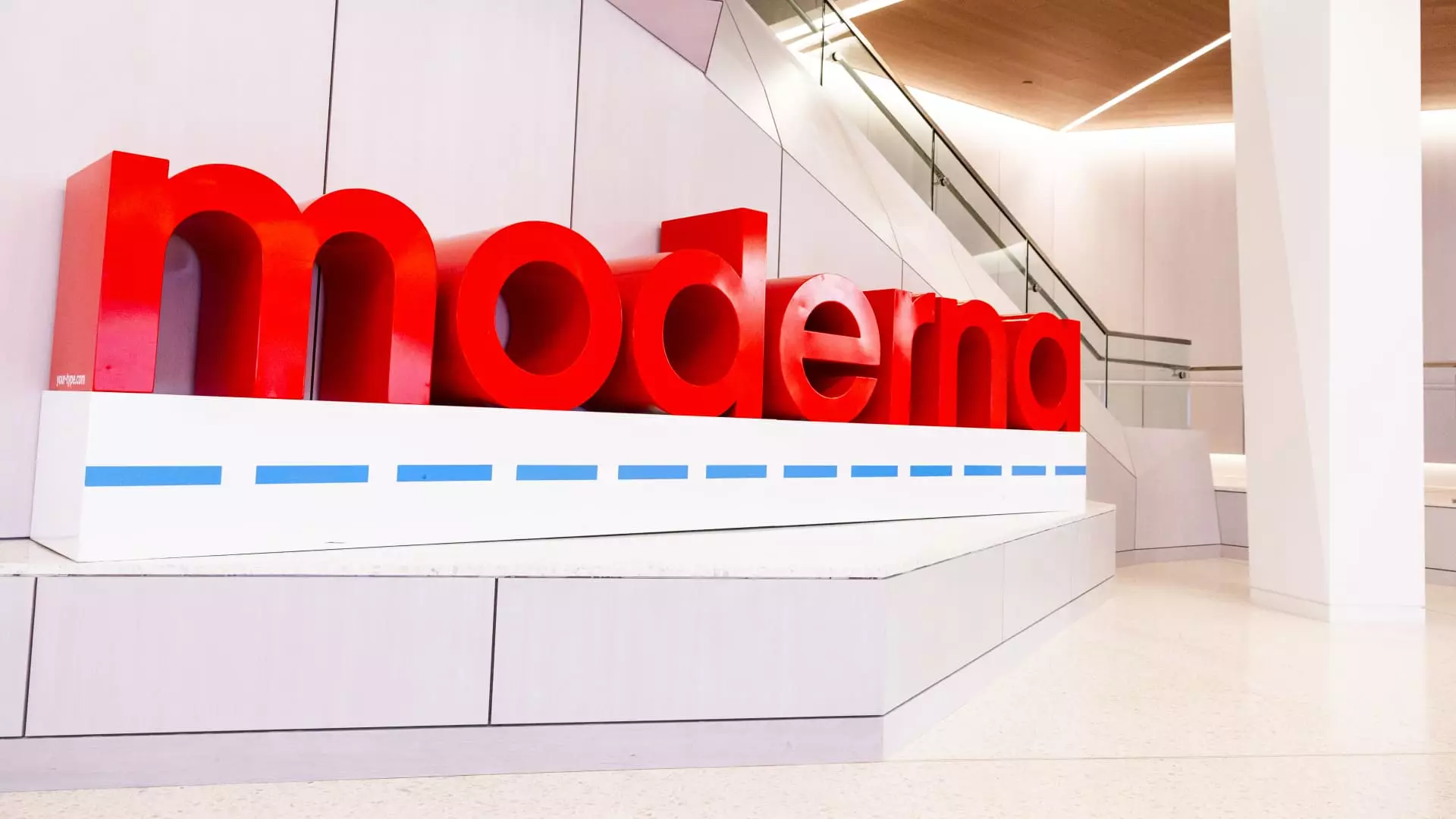The landscape of the biotechnology industry is as dynamic as it is challenging, with companies like Moderna facing hurdles that can significantly impact financial projections. On a recent Monday, Moderna announced a downward adjustment to its sales guidance for 2025 by approximately $1 billion. This shift reflects the company’s response to several anticipated challenges, all while it attempts to expand its vaccine offerings and manage operational costs effectively.
Moderna now anticipates its 2025 revenues will fall between $1.5 billion to $2.5 billion, a marked decrease from its previous estimation of $2.5 billion to $3.5 billion, which was issued just a few months earlier in September. A significant portion of earnings is expected to arise during the latter half of the year, primarily from the sales of its coronavirus vaccine and a newly introduced vaccine for respiratory syncytial virus (RSV). The adjustments come amidst broader concerns regarding the sustainability of demand for Covid-19 vaccines, which had been a major revenue driver since the pandemic began.
These lowered expectations are underscored by the company’s acknowledgment that it would likely break even on an operating cash basis by 2028—pushing this projection back from 2026. In 2023, the company generated impressive revenues of approximately $18 billion, which have since seen a steep decline as the vaccination drive waned, leaving investors anxious about Moderna’s ability to recover.
The news of the revised guidance sent shockwaves through the market, leading to an 18% drop in Moderna’s stock price during premarket trading. Other companies within the vaccine sector also experienced declines, reflecting a generalized fear around vaccine-related stocks amid an evolving landscape shaped by competition and shifting demand. For instance, competitors such as Novavax and BioNTech also saw their stock values decrease, highlighting a pervasive concern regarding the viability of current vaccine product lines.
Jamey Mock, Moderna’s Chief Financial Officer, addressed these apprehensions during an interview with CNBC, detailing the uncertainties that are prompting the company to adopt a more cautious stance. Mock’s insights revealed a multi-faceted challenge landscape, which includes declining vaccination rates, increased competition, and complexities surrounding manufacturing agreements and advisory recommendations in relation to the RSV vaccine.
In the competitive arena of vaccines, Moderna has faced notable challenges. By the end of 2024, its share of the U.S. retail market for Covid-19 shots dwindled to 40%, down from 48% the previous year. The emergence of rivals, including a new co-commercialization agreement between Sanofi and Novavax, further complicates matters. With falling vaccination rates—reported to have decreased around 7% in the fall of 2024 compared to the previous year—Moderna’s forecast takes into account a scenario where future revenues may continue to slide if these trends persist.
Additionally, logistics surrounding the timing of manufacturing contracts and potential recommendations from the Centers for Disease Control and Prevention concerning the RSV vaccine add layers of uncertainty to Moderna’s planning efforts.
Despite these challenges, Moderna is actively pursuing strategies to mitigate financial strain. Mock indicated that the company aims to reduce its cash costs by $1 billion for 2025, with an additional $500 million in cost reductions anticipated for 2026. By focusing on economic sustainability, Moderna is working diligently to conserve cash while pursuing avenues for growth.
The biopharmaceutical firm is not entirely abandoning its hopes for new product developments. It is set on expanding its portfolio by introducing ten new vaccines over the next three years, including innovative combination shots that target both Covid-19 and influenza.
As Moderna prepares for its upcoming presentation at the esteemed JPMorgan Healthcare Conference, its executives have a chance to recalibrate investor expectations and further elaborate on their strategic vision. The prognosis might seem precarious, but Moderna’s commitment to innovation and portfolio diversification reflects an enduring belief in the potential of mRNA technology, which serves as the backbone for its existing and future products.
The journey for Moderna is emblematic of the broader challenges faced by the biotech industry as a whole. By adapting to the fluctuating market demands and harnessing its technological backbone effectively, Moderna may yet find a way to navigate through these turbulent waters and emerge with a more resilient business model.



Leave a Reply